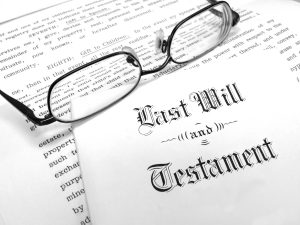
Specifically, the testator “must have the intelligent knowledge of his or her natural objects of their bounty, property, and possessions, and must know what he or she wishes to do with those assets.”
Testamentary capacity is evaluated using the following factors:
- Knowledge of natural objects of his or her bounty.
- Here, a testator must be able to answer basic questions regarding his or her beneficiaries and be able to understand what he or she is doing with his or her assets by designating a beneficiary.
- Knowledge of assets that make up his or her estate.
- Here, a testator is not required to know every asset that makes up their estate plan. However, he or she should have knowledge of most of them.
- Fully understand what he or she wishes to do with their property and assets.
- Here, a person may be physically ill, but his or her mental capacity can still be sufficient to execute a Will. In addition, a person may be only required to have lucid moments in order to execute a valid Will.
While the law presumes that individuals have capacity unless there is evidence to the contrary, a Will or certain advanced directives require a higher degree of capacity than others. However, so long as an individual is aware of their assets, knows their designated beneficiaries, has a thorough understanding of what he or she is signing and what the implications of that document are, he or she will likely have the capacity to execute a Will.
Lack of capacity may be demonstrated through physician evaluations and reports, witness testimony, and other evidence. If a testator lacked capacity at the time the Will was executed, then it may be deemed invalid.
If you are looking to update an existing estate plan or create one for the first time, it is important to consult an experienced New York estate planning lawyer. An estate planning lawyer can provide you with the legal guidance to help you plan for the future and help to ensure your legacy is protected. From simple to complex matters, the New York estate planning lawyers at Blodnick, Fazio & Clark are skilled in all aspects of estate planning and dedicated to representing their clients with diligence and compassion. For more information or to schedule a consultation, call our Garden City estate planning law firm at (516) 280-7105.


